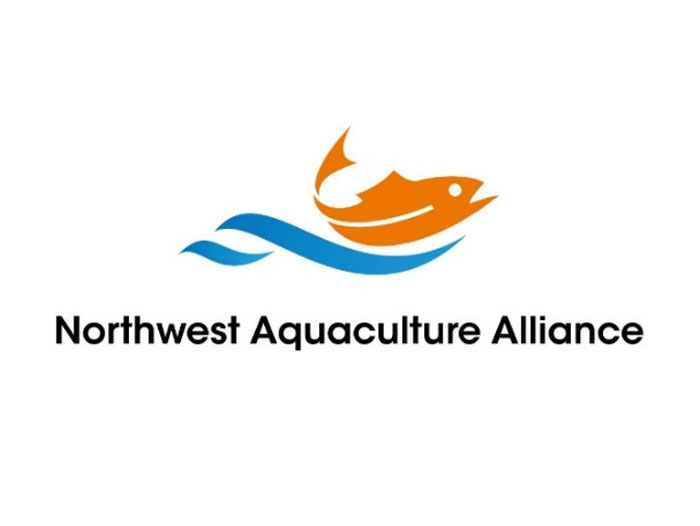NWAA Challenges Anti-Aquaculture Groups Over Steelhead Permit
August 9, 2021 | 4 min to read

An Open Letter to Wild Fish Conservancy et al.:
The Northwest Aquaculture Alliance (NWAA), an organization whose mission is to promote the water farming of nutritious, affordable aquatic foods, and promote a robust Blue Economy in Washington state and the region, would like to challenge your August 6, 2021, press release regarding the permit that the Washington Department of Fish and Wildlife (WDFW) has granted to Cooke Aquaculture Pacific.
This permit will allow Cooke to stock its Hope Island site with steelhead/rainbow trout, a species native to Puget Sound waters. It should be noted that these fish are produced from eggs obtained from local brood stocks that WDFW often uses for stocking Washington lakes and streams.
We applaud the WDFW for making this well-informed and science-based decision which, you failed to mention, was reached after a year of rigorous examination of the science as well as consultation with the scientific community, tribes, and the public. One would hardly call this a “fast-moving process.”
Perhaps the time has come for the groups within your consortium to avail yourselves of the most recent science and compelling evidence that exists today as to the real reasons behind the decline in native fish populations, rather than trotting out the same tired old unproven and outdated allegations that fish farms “can degrade water quality, introduce disease to native fish populations and threaten imperiled animals like Southern Resident orcas.” Such inaccurate statements reveal just how out of touch your organizations have become regarding aquaculture as it is practiced today.
Your statement about the peril of the Southern Resident orca pods is particularly dishonest, given that multiple studies show the declining numbers of resident orca in the Puget Sound is directly caused by the significant drop in native Chinook and other salmonids due to spawning habitat destruction, deforestation, climate change, and upland development.
While campaigning against aquaculture has proven to be a sure-fire fundraising tactic, the fact is that the conversation about the farming of aquatic foods has changed over the past decade, and many past critics now recognize the incontrovertible fact that “water farming” has is now embraced as the most efficient, sustainable, responsible way to meet the protein needs of the growing world population.
Case in point: Just last month, Dr. Rosamond Naylor, the William Wrigley Professor of Earth System Science at Stanford University’s School of Earth, Energy and Environmental Sciences, published a valuable and science-based opinion piece in the respected journal, Nature.
“Until now,” she writes, “the movement to build productive and sustainable food systems has focused on transforming land-based crops and livestock, largely overlooking the critical role that fish and other aquatic foods play in nutrition, livelihoods and ecosystems around the world. That role will increase as food production becomes increasingly vulnerable to climate change….In many cases,” she asserts, “they produce lower greenhouse gas emissions and environmental effects than industrial livestock.…The diversity of blue foods should be embraced as an opportunity, not an impediment, for improving food and nutrition security.”
The Northwest Aquaculture Alliance supports this vision and is proud of the work that our valued member, Cooke Aquaculture Pacific, has done in Washington over the past few years to ensure that all of the rigorous standards that the various state agencies have required of them are upheld.
It is only fitting, we believe, that the WDFW grant Cooke a permit to farm steelhead/rainbow trout.
When this permit was challenged in court by many of the same groups listed in your recent press release, Judge Johanna Bender of the King County Superior Court upheld the permit in its entirety, something you conveniently left out of your release. We suggest that it is intellectually dishonest to claim you have been “blindsided” by a permit process long underway, and litigated by you, last year.
As Cooke points out in its most recent statement, “The WDFW transfer permit for Hope Island was the final step before stocking after already receiving approval from the Washington Department of Fish and Wildlife (WDFW) to switch species in January 2020, and approval from Department of Ecology for updated water quality permits in January 2021. These have been approved after years of extensive scientific review and public input. This WDFW-approved transfer permit is for stocking from Aug-Sept 2021 at our Hope Island sea site in Skagit County with approximately 365,000 native rainbow trout.”
The NWAA is proud of the many advancements that technology has brought, and continues to bring, to our industry, advances that allow aquaculture to be a major part of a sustainable and food-secure future for our planet. As an organization whose members represent all forms of aquaculture—from marine to freshwater to open ocean—we will continue to advocate for aquaculture as the most promising way to meet the global demand for nutritious food.
For certain, aquaculture is the future, and if we do not allow it in Washington despite the best available science, it will nevertheless continue to grow everywhere else but here.
